Dan Andrews exits stage left but his influence lingers
Daniel Andrews was the puppet master whose bright red Labor convictions and policies bled through Australia, reshaping the way leaders govern – Anthony Albanese included.
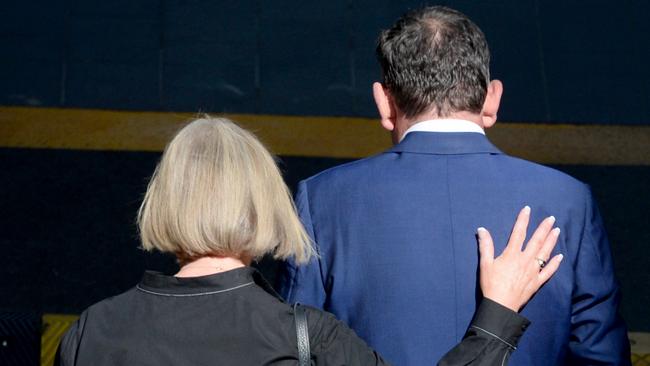
After nine years as Victorian premier, Andrews disappeared into the calm this week with his reforms, campaigning and political style having reshaped the way Labor politicians across the country think about governing and running for office – the Prime Minister included.
Few leaders – state or federal – have had such an impact on community life and the broad political landscape, many of his most contentious policies and strategies being copied by the less confident states: euthanasia, the path to treaty and a supercharged infrastructure program that looks like a budgetary house of cards.
He was the premier most like Labor’s Gough Whitlam, prime minister from 1972 to 1975. Like Whitlam, Andrews is a tall, sometimes entertaining social progressive and frenetic reformer but with limited grasp of the imperatives of fiscal responsibility.
The pandemic fuelled the reputation of Andrews as an unapologetic headkicker who imposed some of the world’s longest lockdowns and then went on with a great spending spree, much of it political, leaving Victoria with a forecast $171bn worth of net debt by 2027.
Those who sat in national cabinet or were briefed on its proceedings have no doubt about Andrews’ power or political abilities. He was the dominant premier. One former colleague describes him as being like a roaring north wind on a 45C bushfire day. “Totally focused,’’ the MP says.
Federal Coalition frontbencher and fellow Victorian Dan Tehan, a former education and trade minister, recalls the worst of the pandemic days and is scathing about the way the states functioned in the national cabinet process.
“They operated as a group,” Tehan says. “Basically as a group that was almost impossible to trust because Andrews was playing them.”
This includes Victoria aligning with NSW, when it was politically possible, to create a bloc of influence that enabled reform on key policy areas such as education and health.
Andrews, 51, was an election-winning machine, with his – and Victorian Labor’s – campaigning unmatched in Australian politics and its lessons studied by other state branches.
He was complex. Despite his reputation, he was capable of genuine compassion and thoughtfulness, although his style never allowed this aspect of his personality to be aired in public.
Former federal Labor leader Bill Shorten, also from Victorian Labor, says the strength of Andrews was a political asset, but one that could divide people. “He was very tough and has a style of leadership that will polarise people,” Shorten says.
Andrews has handed Jacinta Allan, the new Victorian Premier, a margin so fat that she will have to fall over to lose the 2026 race. Labor holds 56 seats in the 88-seat lower house, the Coalition needing to win 17 seats to gain office.
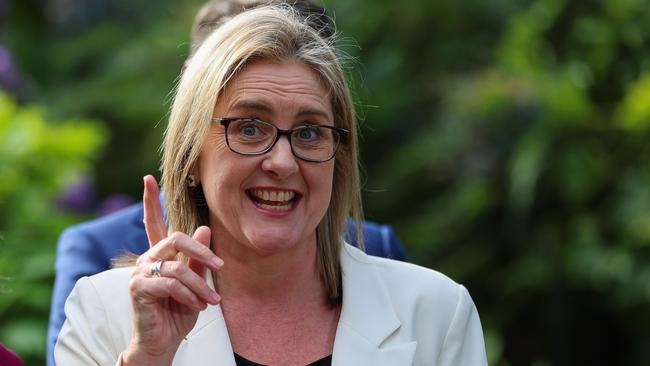
Allan, 50, is a highly experienced minister who served in cabinet in the past three governments; she oversaw the bungled Commonwealth Games process and has a heavy hand in the major project blowouts that have plagued the government.
In an ominous start to her premiership, the ALP factions blew up even before she was elected by caucus, sparking one last angry response from Andrews.
Anthony Albanese and Labor’s federal office are still trying to catch up to the Victorian party’s campaigning benchmarks, which started to take off after Andrews was elected opposition leader in 2010. “We are miles ahead of everyone else,” a Labor campaigner said.
Two staff from US president Barack Obama’s Democrats were brought to Melbourne in 2014 and Andrews never looked back; but at every turn if Andrews wasn’t pulling the strings he was directing the government via the most centralised administration the country has seen.
Victoria, after 20 years of Labor in power since 1999, broken only by the four years of the Baillieu-Napthine governments (2010-14), is swamped by political appointments across government, the judiciary and pretty much every major entity that it has controlled.
This has led to an official inquiry into potential cronyism in the public service and the Andrews government has been mired in claims of corruption and official wrongdoing, facing several anti-corruption inquiries. Nothing has stained Andrews in a career-limiting fashion.
He always knew his enemies; he mastered a 13-year assault on the Greens in inner Melbourne, no doubt to Albanese’s delight; the pair are former housemates who loathe the minor party.
His departure this week bookends a premiership that was basically run in two parts: the reformist era up until March 2020 and then the pandemic years, which are effectively still in play because of the enormous pressure on budgets and the collective fallout from the shutdowns.
Former Victorian Labor premier Steve Bracks helped raise Andrews politically but instinctively was more socially conservative and a sharply better manager of money. He believes the effective union between Victoria and NSW over the path out of Covid and crucial issues such as kindergarten education and health reforms helped define the Andrews era.
Andrews, he says, was close to former NSW premier Dominic Perrottet but also Perrottet’s predecessor, Gladys Berejiklian.
“That worked, significantly, to help the states,” Bracks says.
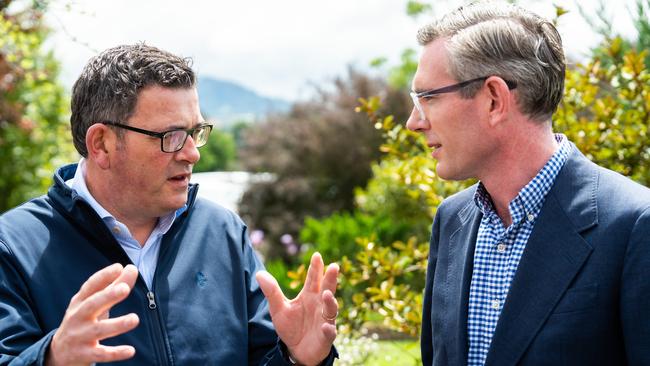
In fact, Andrews and Perrottet remain the federation’s odd couple long after the pandemic lockdowns and the rise of the states through the national cabinet process. Outwardly, the pair could not appear more different but they are still believed to get on, having met recently in Melbourne.
Seizing on the power of the states in the health crisis, Andrews and Perrottet changed the Covid-19 trajectory at the end of 2021, even though Victorian Labor had overseen one of the world’s longest pandemic shutdowns.
“Both states were coming from different places but in the end we both needed to open up,’’ a figure familiar with the friendship says.
Perrottet and Andrews still talk, and there is a strong view that in the crucial national cabinet environment that the two power states ran the show, certainly among the premiers.
Mark McGowan, the West Australian premier at the time, had played a limited role, one source says, “because he thought he was running his f..king own country”, and Queensland premier Annastacia Palaszczuk had been vocal but often deferred to the two dominant states.
“The rest didn’t really matter,” the source says.
Understanding the Andrews legacy is both important and complex, for his model of government and his political style has crossed borders, particularly in Queensland, south through NSW and then into South Australia. Electoral success tends to do that but it isn’t always a good thing.
When Liberal Jeff Kennett swept through Victoria in 1992 after the collapse of Labor during the rust-belt recession, his reforms were copied across Australia and New Zealand.
What Kennett did, though, was to leave behind a $1bn budget surplus in 1999, a highly accountable public sector and a vibe that Victoria was “on the move” as its vehicle numberplates shouted. “My interest in politics has never been about personalities, where I differ is the issue of policy,” Kennett says. “My greatest concern has been the increase in debt under Daniel.”
When South Australia’s Labor Premier Peter Malinauskas went to the polls last year it felt as if the Victorian ALP had taken over.
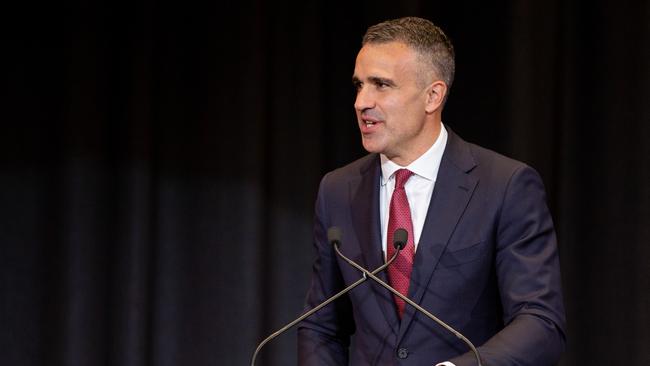
The campaign was marked by similar themes, focusing heavily on ambulance ramping, modern social media and a young (ish) leader whose relative youth was sold as a voting bonus.
There were promises of more paramedics, better TAFE and early learning. It could have been Victoria in 2014 when Andrews was first elected.
This, it seems, is a by-product of Andrews’ success and influence.
If the campaigning similarities are unintentional then they are politically spooky. So much of Andrews’ success can be attributed to his strategy of marketing himself directly to voters. Bracks says he was shocked to find that Andrews had amassed a million Facebook followers, having led the charge in Australia at selling his messages on social media, which also included Instagram, X (formerly Twitter) and TikTok.
“He was able to directly communicate with Victorians,” Bracks says. “He was directly communicating past the journalists.”
Malinauskas, who markets himself on social media as “a father of 3, a weekend gardener, a pretty average footy player and Premier of South Australia”, has 109,000 followers.
Which is not bad in a state of 1.8 million people.
Despite being from opposing factions, Andrews and Queensland’s Palaszczuk share a lot in common, aside from both being long-term premiers.
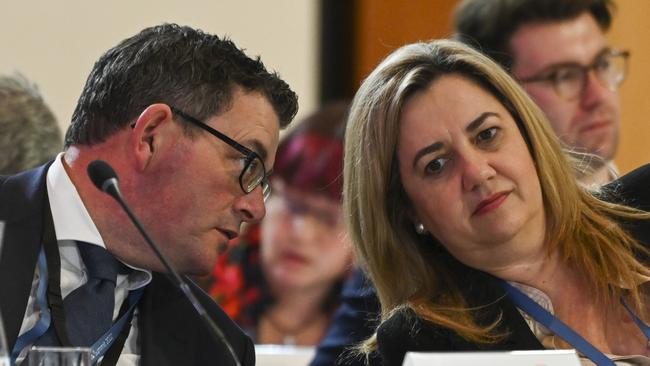
While Andrews has imposed big social change in Victoria, in large part to counter the influence of the Greens, Palaszczuk has copied Victorian reforms, such as euthanasia, or introduced other changes such as abortion reform, the path to treaty and a bill of rights, which was implemented years ago in Victoria.
Those who watch Queensland politics say Palaszczuk would see Andrews as a political fellow traveller and someone she could use as a sounding board.
The Queensland Premier does not have the advantage of being in a state that naturally has tended to veer left on social issues, although that is changing across time.
The pair also shared similarities in their pandemic responses but the virus did not escape in Queensland as it did in Victoria in 2020, when 800 Victorians died.
Despite the 2020 mistakes and the onerous lockdowns, Andrews still managed a thumping majority, winning a third term nearly a year ago.
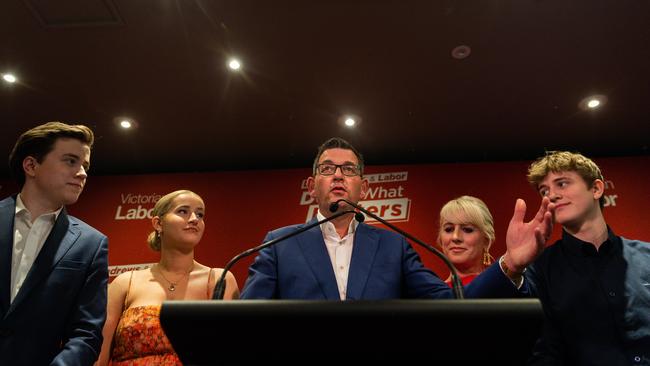
Former NSW premier Bob Carr says even going for a third term in office is brave.
“But that was a tribute to the confidence with which he applied his political agenda,” Carr says. “And the bravado with which he sold it.”
Andrews ran a highly centralised model of government, with a supersized private office with what one MP described as “control freak tendencies”.
This heavily controlled atmosphere has infuriated many MPs and left some ALP powerbrokers mystified about why the government has been so tightly managed.
It has led to a climate of mistrust, and even Andrews conceded on Tuesday that his work ethic might have been unhealthy.
“I am worse than a workaholic. Every waking moment is about the work. And there’s only so long you can do that,” he said.
Perhaps the most peculiar part of the government was the culture of fear that surrounded the caucus. It is one thing for there to be cabinet solidarity, quite another for MPs – past and present – to be too concerned to raise their voices when problems emerge in the government.
“The reality is that anyone who publicly raises issues will be in trouble,” one former minister has said. “They know that they will pay a price for it and that price will be either being ignored or deprived of post-career opportunities. Dan doesn’t want to listen to any criticism or, worse, doesn’t want to be challenged on any of it.”
Despite denials among some Andrews loyalists, this view is ubiquitous.
One of the issues facing former politicians is that superannuation entitlements shrank dramatically in Victoria after former federal Labor leader Mark Latham campaigned for reform of the federal system. This austerity measure was copied in Victoria.
It means those state MPs elected after 2002 do not receive the more generous defined benefits scheme allowances. This has had two effects. First, it discourages people raising issues such as the massive debt blowout or even integrity. Second, it means MPs are more reliant on jobs for a second career after politics, which creates another layer of issues.
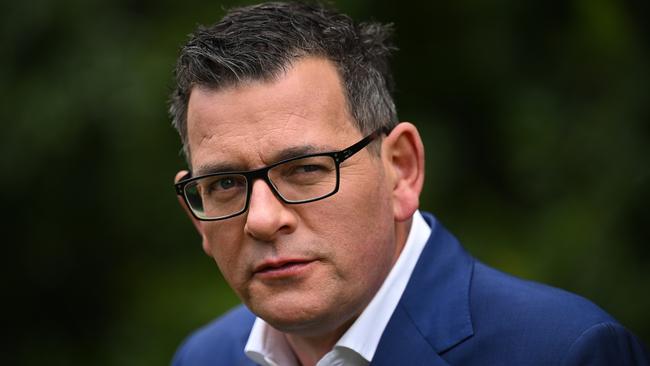
One of the defining characteristics of the Andrews government has been to hand former ministers and MPs significant public board positions, which has entrenched Labor’s footprint, especially in areas where they can pull out dividends to bolster the budget. This is not to say that anyone would, or has, abused their position, but it does raise considerable questions about what sort of government Andrews has been running.
The Victorian Ombudsman is expected to file a report into the alleged politicisation of the public service. It’s a similar scenario to what critics argued happened in Queensland.
It becomes an important issue when politically sensitive organisations, such as the loss-making workers compensation scheme in Victoria, are on their knees financially.
For all the strengths and experience of new Victorian Premier Allan, there is hardly likely to be vastly different ethical standards in the government when the state opposition is so weak.
While the new Premier will face huge factional pressure to run a different style of government, this won’t extend to external accountability. Instead, expect more of the same.
This is the Labor DNA.


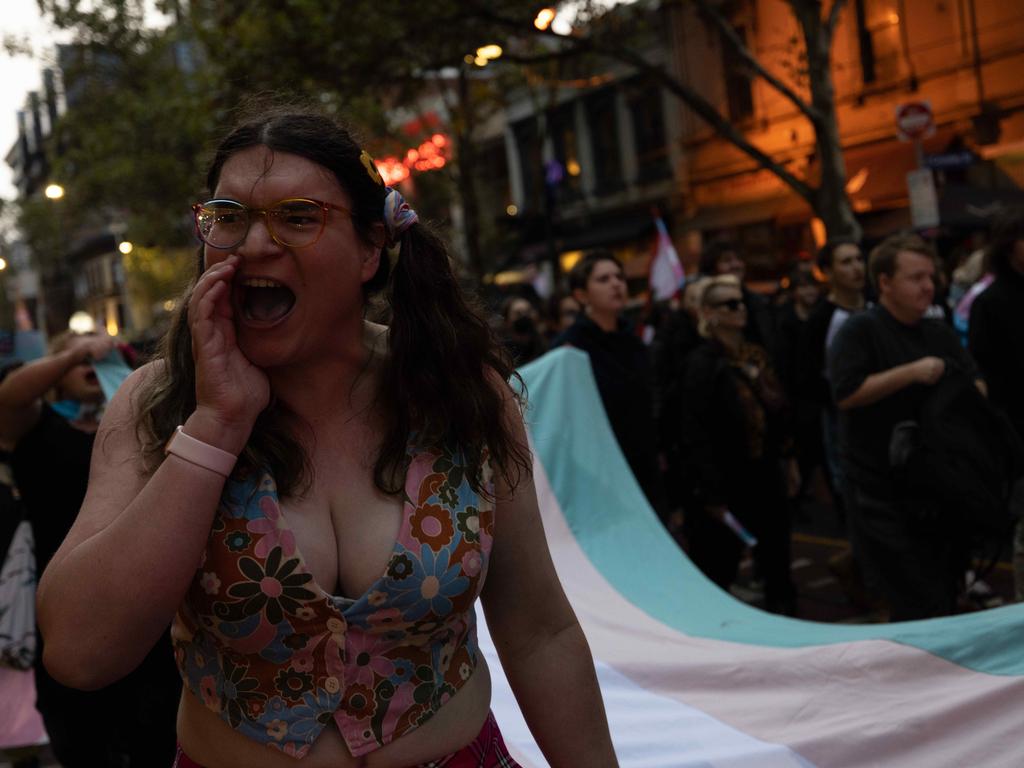


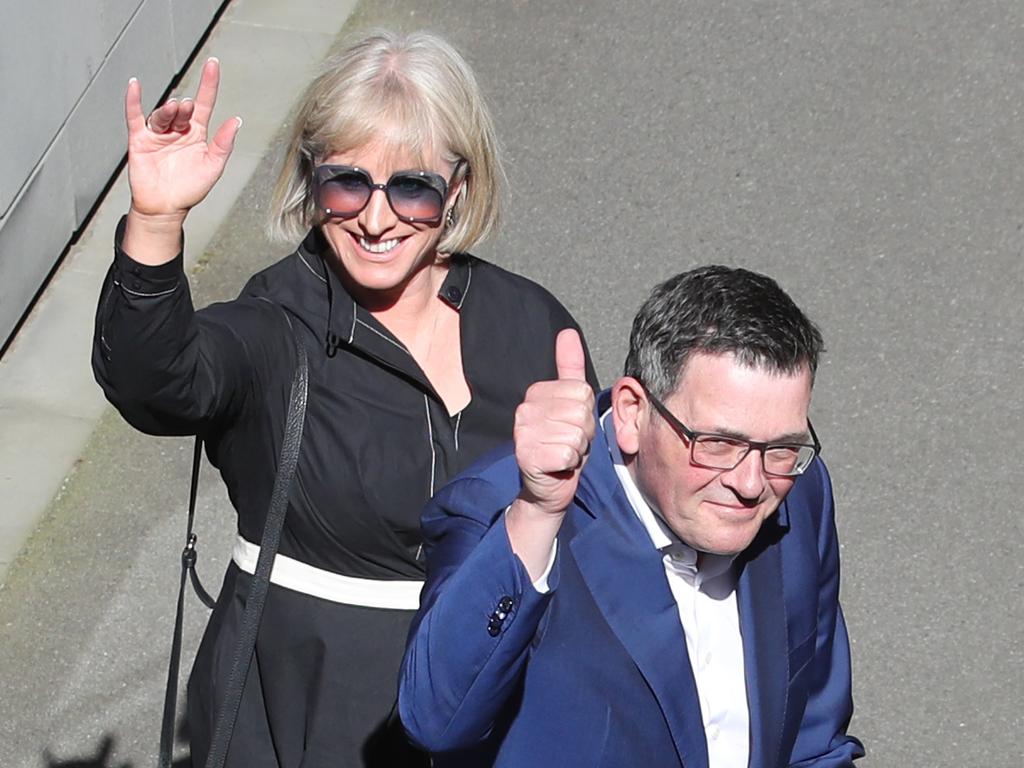


Daniel Andrews was the puppet master whose bright red Labor convictions and policies bled through Australia.